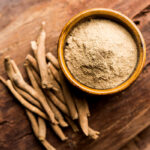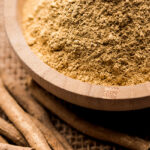A Complete Guide to Ashwagandha for Sleep
If you believe in the healing benefits of plants and other natural supplements, this article is for you. Ashwagandha also referred to as winter cherry or Indian ginseng is one such herb believed to have sleep-inducing benefits. It’s also commonly used in Ayurveda and other alternative health practices. The small evergreen shrub is native to India and Southeast Asia where it’s harvested for its medicinal properties and is believed to be an effective and safe alternative to modern medicine.
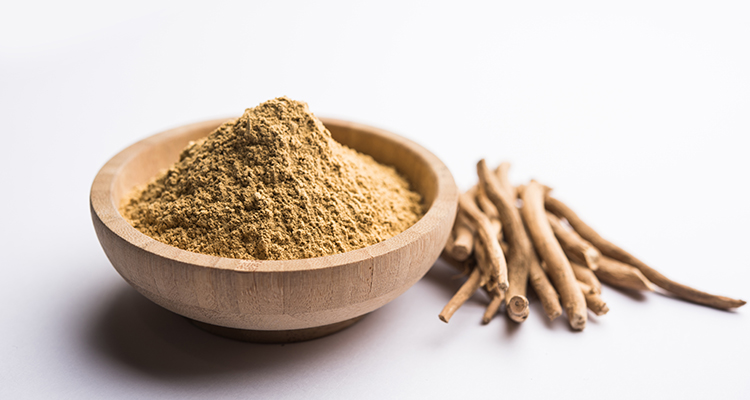
But how exactly does Ashwagandha work and can it help you achieve better sleep? Keep reading to find out.
Content
What is Ashwagandha and How Does It Work?
Aside from offering sleep-inducing benefits, ashwagandha is said to offer a variety of other health benefits. The herb is classified as an adaptogen, which is a term used to describe herbs that work to protect and heal the body. One such benefit of ashwagandha is stress relief. While more research is needed to back these claims, ancient practices credit the herb with helping ease stress and anxiety – two leading causes of sleep troubles in many people.
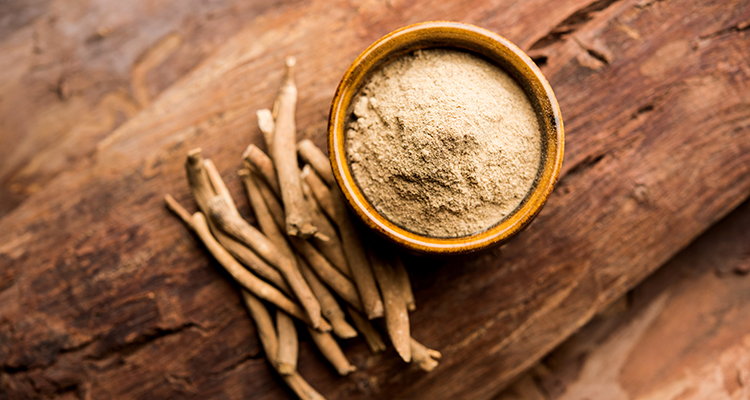
One reason for this is that ashwagandha helps reduce cortisol levels in the body. Cortisol is the hormone that your body releases when you experience extreme stress. By reducing these levels, the herb may also prevent HPA-axis dysfunction, also known as adrenal fatigue. Adrenal fatigue occurs when your adrenals are overworked and no longer secrete healthy levels of cortisol that your body needs to function at optimal levels. Potential causes include changes in your diet and other environmental factors. Adrenal fatigue is also associated with chronic exhaustion. Ashwagandha may also support thyroid function which directly impacts energy levels.
According to proponents for herbal medicine, ashwagandha works to improve the function of several important systems in the body including the central nervous system, cardiopulmonary, and endocrine. Other potential benefits include pain reduction and improved cognitive function. Ashwagandha offers some anti-inflammatory properties as well as antioxidants that work to improve immune function and ward off illnesses and diseases.
Ashwagandha has also been linked to treating mild cases of OCD (obsessive-compulsive disorder), RLS (restless leg syndrome), and fibromyalgia. Other benefits include enhanced brain health and more stable blood sugar levels.
As of this writing, research on the herb and its benefits is ongoing and questions still remain over whether or not long-term use of ashwagandha may result in unknown or potentially dangerous side effects. Much of this depends on the patient’s health history and reasons for using the herb.
The Connection Between Ashwagandha and Sleep
Initial research suggests that ashwagandha may help people suffering from insomnia fall asleep faster, achieve better sleep quality, and spend more time asleep. Over 70% of participants in one study that took the herb for six weeks described sleeping “much better”.
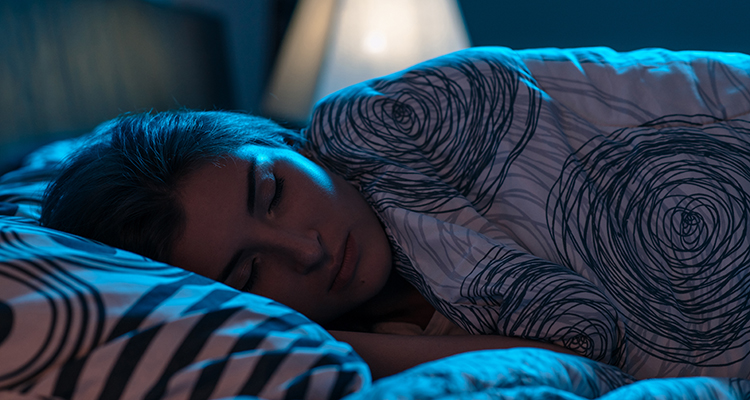
But what is it about this herb that can help improve your sleep? Ashwagandha contains several different compounds that may also work as a natural sleep aid. One such compound is triethylene glycol which is naturally found in the herb and may trigger drowsiness. Other researchers believe that ashwagandha interacts with the brain’s GABA receptors which control your circadian rhythm and regulate your sleep-wake cycle. Because more research is needed to support these claims, some people are hopeful that ashwagandha may contain even more healing compounds that play a role in promoting quality sleep and its other therapeutic effects.
Of all its active compounds, withanolides are the main ingredient in ashwagandha and the main source of the herb’s stress-relieving benefits. Not only is stress linked to excessive daytime drowsiness but also poor sleep quality, depression, and chronic sleep deprivation. Most people that take ashwagandha for sleep consume the herb before bed to help reduce their anxiety and promote relaxation.
Ashwagandha’s role in regulating your body’s HPA axis may explain some of its sleep-inducing properties. HPA is an abbreviation for hypothalamus, pituitary, and adrenal – the combination of glands found here. When the HPA axis is functioning properly, you’ll feel alert and awake in the morning with energy levels tapering off as the day goes on. This occurs as cortisol levels start high during the day and dip as night falls. Individuals with unhealthy or higher-than-normal cortisol levels in the evening often experience sleep troubles. Individuals with adrenal insufficiency are at higher risk of experiencing cortisol-related fatigue. By regulating the HPA axis, ashwagandha may also promote healthier cortisol levels at appropriate times during the day.
How to Take Ashwagandha for Sleep
If you’re intrigued about the potential benefits of this ancient herb, it’s important to also understand the many ways you can consume it and how to do so safely. The good news is, this herb is available in many forms including a powder, pill, tea, tincture, and even gummies. When it comes to price, this varies greatly depending on the brand of the product, how much you buy, and the quality. In some cases, ashwagandha is mixed with other natural herbs and vitamins to deliver optimum results.
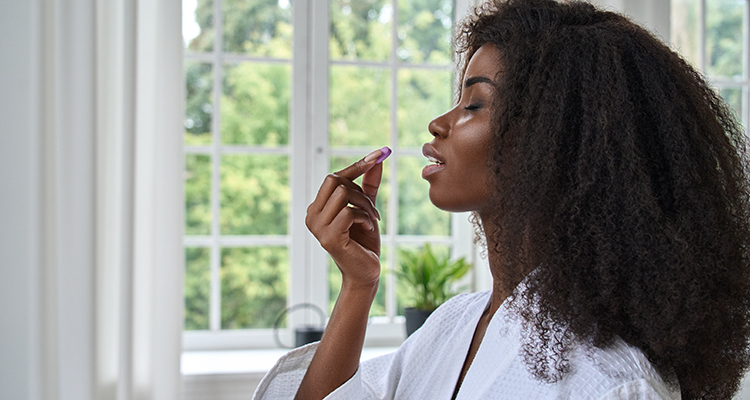
For those using ashwagandha for sleep, start by carefully reading the directions on the product you buy. There’s no set dosage for this herb and different experts suggest different things, so it’s important to consult with your doctor or another medical professional before consuming any new herbs or supplements for sleep, including ashwagandha. Most sleep experts agree that you shouldn’t use ashwagandha for more than three consecutive months. If you experience sleep troubles for this length of time, you may have an undiagnosed sleep disorder that requires medical evaluation.
When to Take Ashwagandha for Sleep
There’s no “best” time to take ashwagandha for sleep. While some people like to start their day with it, others take their daily dose at night before bed. The choice is yours and it mostly depends on your individual goals and tolerance.

Taking Ashwagandha in the Morning
Unlike some sleep medications and supplements that take effect almost immediately, you won’t feel the effects or benefits of ashwagandha immediately. In fact, it may take several weeks of continued use for you to start seeing a notable difference in your sleep patterns.
One study followed 60 people taking 300 mg of the herb every day for 10 weeks. It took nearly this long for participants to see significant changes and improvements in their sleep quality. Many people take ashwagandha as part of their traditional supplement routine. If this describes you, you can take it in the morning along with your other vitamins and medications and still enjoy the benefit if improved sleep quality.
If you choose to do this, it’s advised you take ashwagandha with breakfast or a small snack. Ingesting the supplement on an empty stomach could lead to mild discomfort or an upset stomach in some people. You can also add the supplement to your favorite smoothie or drink to help coat your stomach and prevent discomfort.
Taking Ashwagandha at Night
If you’re taking ashwagandha for its soothing and relaxing benefits, you may want to incorporate it into your nighttime routine. One popular way to do this is by making moon milk using ashwagandha powder as well as nutmeg and other spices to create a sweet, soothing, sleep-inducing nighttime elixir. If you’re prone to stomach upset or other gastrointestinal issues, it may be better to take ashwagandha at night versus in the morning.
The most important thing to remember when using ashwagandha for sleep is to take it consistently. Choose a time of day or night and stick with it. The more consistent you are, the more likely you are to experience the wide range of benefits this herb has to offer. Don’t be afraid to adjust your schedule as your needs change.
How Does Ashwagandha Stack Up Against Other Sleep Aids?
Are you torn between taking ashwagandha for sleep or trying another herb or supplement? If so, you may want to compare this product with others before making a final decision. Unfortunately, there’s been little research done on how ashwagandha compares to other sleep aids in its class. That means there’s no way to know if this herb will work better or worse compared to prescription, OTC, or other natural sleep aids. There’s also no telling what the potential side effects or drug interactions might be.

One review, however, did compare over 20 herbal remedies used for insomnia and found that ashwagandha, valerian root, and passionflower showed the most potential. More research is needed, however, to determine the effectiveness of natural sleep aids that contain ashwagandha. Ultimately, you’ll need to choose the sleep aid, supplement, or herb that works best for your specific sleep needs and the current sleep troubles you’re experiencing. A doctor or sleep specialist can offer useful insight into the underlying causes of your sleep issues.
Potential Side Effects of Ashwagandha
Although the long-term side effects of ashwagandha are still under investigation, most researchers agree that it’s safe to consume this herb for up to three consecutive months. When doing so, you may experience some of the following, mild, side effects:
- Upset stomach
- Diarrhea
- Vomiting
- Nausea

Less common symptoms reported by some users include:
- Excessive drowsiness
- Dizziness or vertigo
- Dry mouth
- Congestion and cough
- Hallucinations
- Rash
- Blurred vision
- Unexplained weight gain
In rare cases, ashwagandha and supplements containing the herb may be linked to liver damage. Symptoms of these more serious side effects include jaundice (yellowing of the skin or eyes) and itchy skin. If you experience any of these symptoms, stop using the herb right away and contact a medical professional.
Deciding if Ashwagandha is Right For You
Most people turn to natural herbs and supplements as a way to gently ease insomnia symptoms and achieve quality sleep without the use of prescription or OTC drugs. But not all natural sleep aids work well for everyone. While a lot of it comes down to trial and error, consider these factors before trying ashwagandha for sleep. If you fall into any of these categories, this herb may not be the best option for treating your sleep troubles.
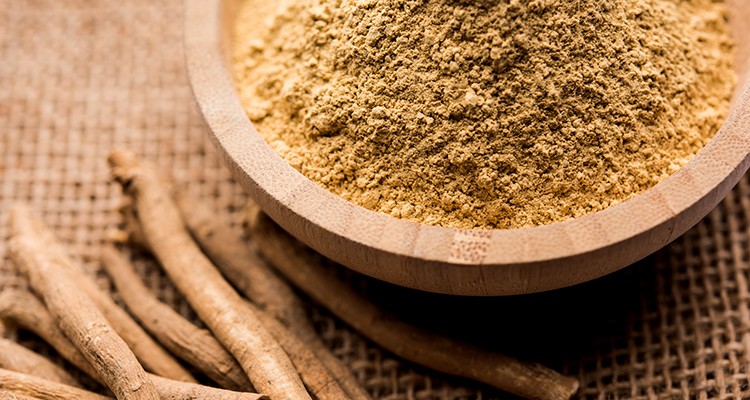
- People with auto-immune diseases
- Women who are pregnant, trying to get pregnant, or breastfeeding
- Anyone who has recently undergone surgery or has surgery scheduled in the near future
- People with certain thyroid disorders
Find the Best Natural Herb or Supplement for Your Unique Needs
With as much as 50% of the adult population suffering from insomnia, it’s no wonder there are countless remedies, medications, and techniques all promising to deliver the secret cure. The truth is, there is no one guaranteed way to overcome insomnia. Instead, it takes a combination of research, patience, documentation, and lifestyle changes to not only ease insomnia symptoms but uncover the underlying cause of your sleep troubles.
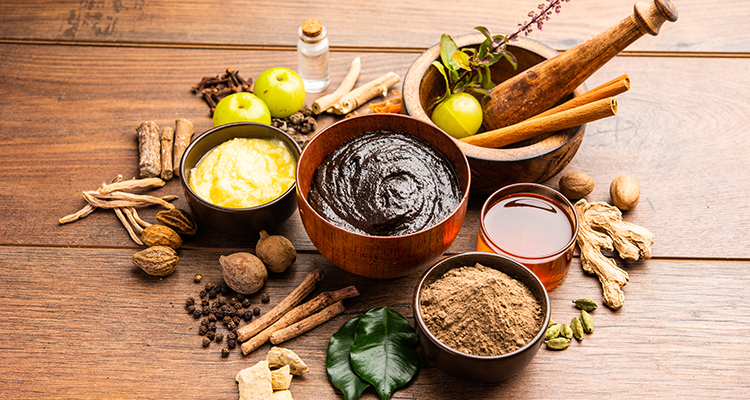
Through a combination of CBTi (cognitive behavioral therapy for insomnia), meditation, mindfulness, and other effective techniques, Somnus Therapy works one-on-one with patients to help them better understand, accept, and treat their sleep problems. If you’re ready to embrace change and finally achieve the blissful sleep you need and deserve, click here.

